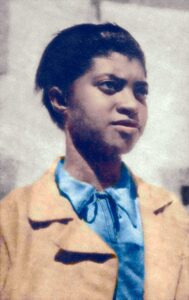Letter to the Editors: About Salaria Kea
To the Editors:
An article by Kathryn Everly in the March 2022 Volunteer on Salaria Kea’s life and her experiences in Spain focused on the fairness of comments found in the ALBA Collection at the Tamiment Library. When Fredericka Martin reviewed materials by and about Salaria, she found that some accounts of incidents were either false or exaggerated. Freddie asked another nurse, Anne Taft, to review her assessment, and Anne agreed. In her article, Everly suggests these negative comments were the product of racism on the part of the white nurses who negated the effects of racism Salaria experienced throughout her life.
For an African American woman living and working in the United States, racism was ever-present and constantly resisted. The Lincoln Brigade Vets were human and therefore not perfect—but racism was not a prevalent characteristic. I did not know Freddie Martin and Anne Taft, but they were friends of my mother, May Levine. If they were racist, they would not have been her friends. Unfortunately, they are not around to defend themselves.
After the war, Freddie worked in the Pribilof Islands with the indigenous Aleuts. She wrote about her experiences there and contributed to an Aleut language dictionary. Later, she moved to Mexico. This is not the expected behavior of a racist.
In December 2011, the Volunteer ran another article about Salaria by Emily Robins Sharpe, who indicated that one of the difficulties in studying Salaria’s life is “that subtle details change from memoir to memoir.” These changes may help explain Freddie’s and Anne’s comments, given that the passages in question did not correspond to their own memories.
Beyond any disagreements about particular events, Salaria’s contributions and sacrifices during her time in Spain were important and need to be honored. The point of this note is that charges of racism should be backed up by evidence. I don’t believe that sufficient evidence has been provided in this case.
–Peter Hartzman (Sunnyvale, CA)













